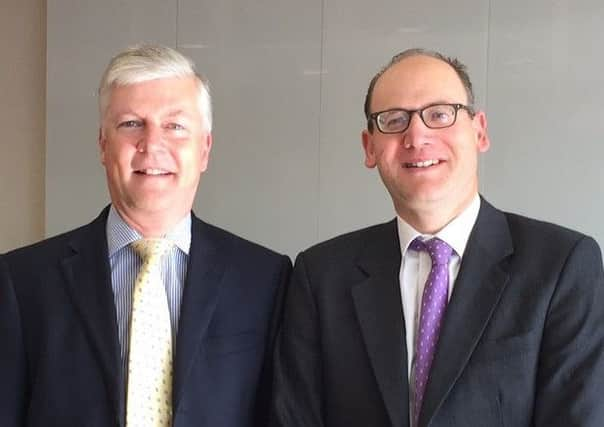Maclay Murray & Spens name to disappear in Dentons tie-up


This article contains affiliate links. We may earn a small commission on items purchased through this article, but that does not affect our editorial judgement.
The deal will see the MMS brand disappear as it comes under the Dentons banner. MMS, which traces its roots back to 1871, was the first commercial law practice to be set up in Scotland. Founded in Glasgow, it has other offices in Aberdeen, Edinburgh and London.
• READ MORE: Legal sector news
The tie-up with Dentons, which is expected to complete this year following approval by the partnerships of both firms, will create a combined practice with about 800 fee earners, including 200 partners, across the UK.
Advertisement
Hide AdAdvertisement
Hide AdDentons, which operates under a “decentralised” structure with no specific headquarters, has more than 8,000 lawyers in some 60 countries. Its senior leadership are mainly based in Beijing, London and Washington.
MMS chief executive Kenneth Shand told The Scotsman that discussions over the deal started in earnest at the start of the year, “getting to understand the strategic fit for the businesses and how the practice areas would complement one another and what the opportunities would be going forward”.
He added: “We’ve now gone through the processes of partner approvals for our partnership in [MMS] and also the Dentons UK, Middle East partnership that we will be joining and Dentons are currently midway through their normal process of getting global partner approval and we anticipate that being completed in a couple of weeks’ time and the merger coming together later on in the year.
“It’s obviously early days in terms of integrating the businesses. We’re very much in the foothills of thinking about that. I think there are inevitably going to be some areas as in any combination where there are some synergies but we haven’t formed any conclusions on any of that at this stage. I think overall this is about expanding the proposition and extending the opportunity available to both our clients and Dentons’ existing client base and we would expect to grow over time.”
• READ MORE: Promotions for 20 at law firm Maclay Murray & Spens
MMS’s workforce comprises 258 fee-earners, including 62 partners, and a team of 430 staff altogether including support staff across four offices.
The disappearance of the MMS name will follow that of McGrigors, which merged with Pinsent Masons in 2012, and Dundas & Wilson, which was swallowed by London-based CMS the following year. CMS last year struck the largest-ever merger seen in the UK legal sector when it agreed to a tie-up with rivals Nabarro and Olswang.
Advertisement
Hide AdAdvertisement
Hide AdShand said: “I’ve been with the firm 35 years so I have a strong personal emotional attachment to a brand that’s been going for a long time, but we do feel that we have a significant opportunity here to really enhance the platform that’s available to our clients primarily and also to our people both the partners and everybody else in the firm.”
Dentons’ global chief executive, Elliott Portnoy, said the deal with MMS would “significantly enhance” its scale and capabilities in the UK.
Jeremy Cohen, chief executive for the firm’s UK and Middle East region, added: “We’re now the largest law firm in the world and we’ve got a really strong presence on all continents so… clearly that’s an opportunity to take to the Scottish market, to Scottish clients and other UK clients, the ability to offer a really global service.”
He also said there was the opportunity, which MMS has already been doing, to work across the UK, “but now we’ll be a really powerful UK firm and able to offer UK clients that combined service”.
Cohen added: “By combining we will also significantly increase our out-of-London capability. Working seamlessly with colleagues in London, our Milton Keynes and Watford offices already enable us to deliver enhanced value to many of our largest clients. This combination will upscale that ability by a very considerable margin.”